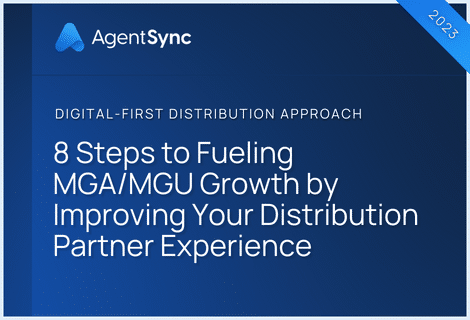

Who doesn’t love saving money? And “saving money on insurance” is a key promise in most insurance advertisements. While offering competitive rates can be a selling point for many insurance carriers and independent insurance agents, both need to be diligent about their sales and marketing practices to make sure they’re staying on the lawful side of a practice known as “rebating” in insurance.
What is insurance rebating?
The term rebating in insurance refers to a practice of giving money back to a policyholder in order to incentivize or “induce” a sale. Rebating can refer to an insurance producer passing on some of their commission to the policyholder but that’s not the only method of rebating in insurance.
A few common examples of insurance rebating include:
- An insurance agent accepting a lower commission on an insurance policy so the policyholder can in turn pay a lower premium.
- Promising discounts on future insurance premiums.
- Giving valuable gifts or money to clients in order to persuade them to purchase a policy.
On top of these and other methods of insurance rebating, insurance producers, agencies, and carriers need to pay attention to anything that could be considered an unlawful inducement.
Insurance rebating versus unlawful inducements
While not technically rebating, there are other methods of inducing customers to buy insurance policies that are still not legal in most states. Other types of unlawful inducements (also called illegal inducements) may include a producer offering a prize to any client that purchases a policy, entering clients into a drawing or raffle if they purchase a policy, or even wining and dining a client and their family at an expensive restaurant with the expectation that the family will purchase insurance products afterward.
To put it simply, insurance agents need to exercise caution and be very familiar with the laws in their own state (and any nonresident state they’re selling insurance in) to make sure they aren’t participating in insurance rebates or unlawful inducements.
Is rebating in insurance legal?
Insurance rebating is illegal in all U.S. states except in California and Florida, where there are legal forms of rebating and the practice is regulated by the states’ departments of insurance. California and Florida became exceptions to standard nationwide insurance rebating practices when voters repealed the states’ anti-rebating laws in 1988 and 1990, respectively.
However, what actually qualifies as rebating – and what is an exception – varies. If you really want to go down the state-by-state rabbit hole, you’ll love this Council of Insurance Agents & Brokers (CIAB) document! Another nuance of the rebating discussion is that, even when state laws allow for it, insurance carriers can prohibit rebating in their own contracts to keep agents from engaging in the practice.
Why is insurance rebating usually illegal?
The insurance industry relies on mathematically calculated rates based on each policyholder’s level of risk. Typically, people with higher-risk situations will pay higher premiums. The practice of rebating in insurance could allow unfair discrimination by giving someone a price that doesn’t align with their risk level. This threatens both the interest of the insurance consumer and the solvency of the insurance company. Thus, rebating has long been a no-no in insurance practices.
Insurance rebating is also seen as a negative because it can create an unfair competitive advantage for an insurance producer who’s willing to personally pony up money to incentivize their own sales. Monetary incentives can be powerful and can also lead to people buying insurance policies they don’t need, or that aren’t in their best interest, simply because they’re getting an attractive promotional offer.
Because of these risks and potential downsides, insurance rebating has been illegal since Massachusetts outlawed it in 1887, with many other states soon following suit.
What laws govern insurance rebating?
Each state controls the specifics of its own insurance rebating laws, along with any exceptions. To help encourage uniformity across states, the National Association of Insurance Commissioners (NAIC) wrote model legislation called the Unfair Trade Practices Act. The first version of this model legislation, known as Model No. 880, dates all the way back to 1945!
Most states have adopted this legislation in some form, although case law and insurance department bulletins have created variations between states’ anti-rebating regulations. In situations where voters have repealed anti-rebating laws, insurance carriers have often picked up the torch and written anti-rebating rules into their contracts, thus limiting agents’ abilities to operate in this gray zone.
What are some exceptions to insurance rebating laws?
Prior to 2019, many common exceptions (determined on a state-by-state basis) included*:
- Giving away promotional items to prospects and customers
- Entering prospects and customers into raffles
- Offering a referral gift or bonus to customers who refer new business
- Making charitable donations on behalf of a customer
- Providing value-added services that aren’t strictly part of an insurance policy
*All with many criteria and caveats that kept these activities from falling into rebating territory.
Generally, states provided exceptions for insurance agents to use gifts and prizes in ways that would help them promote their business as long as the recipient wasn’t expected or required to make a purchase in return, and with dollar limits on the value of such gifts.
How are insurance rebating laws changing?
As far back as 2009, states have been changing their own laws on insurance rebating to allow for higher-value gifts and promotional items, and adding new allowable exceptions to the definition of rebating. Even more recently, in 2019, the NAIC’s Innovation and Technology (EX) Task Force began discussing changes to its model law that would loosen some of the restrictions on rebating in insurance, if adopted by states.
The largest impetus behind rethinking older insurance rebating laws is the potential advantage (both to insurers and consumers) of new technology. As insurance carriers, agents, and consumers all realize that “prevention is the new solution” it makes sense for insurance companies and agents to provide (for free or at a discount) risk-preventative tech to policyholders.
For example, if an agent gives a new homeowner’s insurance client an internet-enabled moisture sensor or fire alarm, these items would both reduce risk and prevent claims through early detection and violate many states’ current laws on insurance rebating. Insurance companies, agents, and state regulators are looking to change that.
With its 2021 update, the NAIC made changes to the Unfair Trade Practices Act to allow insurance companies and insurance agents to give clients products that directly reduce risk, minimize claims, or (in the case of health insurance) increase wellness. This new model law hasn’t been adopted in every state, but at least sixteen states have already either adopted it or are making changes to the same effect.
The allowance for risk-lowering devices isn’t the only change the NAIC has proposed in its new model legislation on insurance rebating. A couple of other provisions include:
- Insurance agents may offer prospects and clients non-cash gifts, meals, and other items and services as part of their marketing and sales process, as long as they don’t require a purchase in return and the value of the items “determined to be reasonable by the commissioner.”
- Insurance agents may hold raffles or drawings for prospects and customers as long as it doesn’t cost the participant an entry fee, the raffle abides by state laws, no purchase is required, and the prize is valued reasonably.
Of course, the definition of a “reasonable value” can vary from state to state. Insurance agents who want to use any type of reward, incentives, or gifts in their marketing and sales activities should definitely consult with an attorney and/or their state department of insurance. Please note: We at AgentSync are neither of those things.
Changing technology and changing insurance regulations
The changes to insurance rebating laws clearly demonstrate the intersection of emerging insurtech and evolving regulations. If your insurance company, agency, or MGA/MGU is like most of the industry and trying to grow rapidly, you might want to consider how technology can simplify compliance with all applicable laws and regulations – even when you work across multiple states and multiple lines of business. If that sounds intriguing, see how AgentSync can help!

